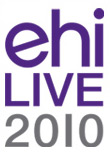The consultation on a new NHS information strategy calls for IT and informatics staff to be given greater status and better skills.
‘Liberating the NHS: an information revolution’, which was issued for three-month consultation this morning, says “it is NHS staff who will lead the information revolution”; but IT and general managers will need to encourage them.
It goes on to say that in future, “information cannot be seen as something that is the sole responsibility of the specialist” and that it has to be understood as “a vital component of all care and business processes.”
The 70 page document lists proposals that are designed to build information for planners, regulators, clinicians and patients from patient records, and to make that information available in new ways.
Health secretary Andrew Lansley said it recognised that “information is a health and social care service in its own right” and that it “must be freely available to all who need it.”
The consultation points out that at the moment, IT and information services in the NHS “vary in their size, structure and function”.
It notes that they range from “mature health informatics services” to “relatively small IT functions whose primary focus is to keep the current infrastructure running as cheaply as possible.”
It says “there is a need to raise standards by making informatics development a part of core planning for health and care organisations.”
To achieve this, it says “senior managers in health informatics functions will need high-level strategic leadership abilities to establish a business-based dialogue with their organisations.”
It also says industry recognised competence frameworks should be introduced to help with the recruitment and development of informatics professionals, coupled with the development of a Health Informatics Career Framework.
The paper also calls for all staff working in the NHS to understand the importance of data quality and the importance of good information to improving patient outcomes.
It says that “national education and training in approved informatics standards will need to be available” – but makes no mention of the Essential IT Skills (EITS) Programme that NHS Connecting for Health introduced to replace ECDL in 2008.
EHI Jobs on LinkedIn: An eHealth Insider Jobs group has been set up on the LinkedIn professional networking site. The group will provide support, information and discussion for jobseekers and people wanting to develop their career in healthcare IT.

The Association for Informatics Professionals in Health and Social Care (ASSIST), which promotes professionalism in NHS IT and informatics, will be exhibiting with the BCS – Chartered Institute for IT at eHealth Insider Live 2010.
Online registration for the event, which will be held at the NEC in Birmingham from 8-9 November, is now open.
